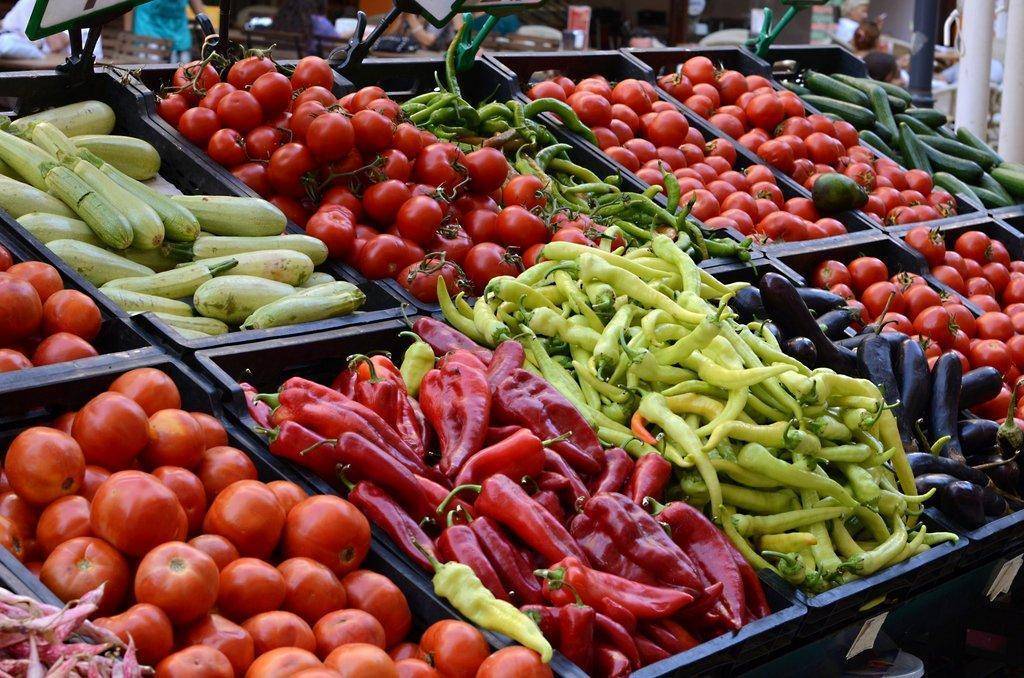By Heidi LeBlanc and Casey Coombs
Farmers markets are known for offering an ever-changing variety of fresh fruits and vegetables. Although variety is a benefit of shopping at local farmers markets, it can be difficult and overwhelming to come up with a menu for the week without knowing what will be available at the market. Being flexible allows you to choose the produce that looks the best and is offered at the best price. Below are tips for planning meals around the unpredictable availability at farmers market.
- Reverse your menu planning schedule. Shop at the market first, then build a menu for the week based on what you purchased. This will ensure that you use what you bought, which will reduce food waste.
- Plan the non-vegetable portion of your meals, then add the vegetable part after seeing what looks best at the market.
- Have a general sense of when different fruits and vegetables are usually in season. Plan your menu with at least two options, then buy the one that is offered at the best price.
- Bring your menu to the market. If there is something that looks great, but isn’t in your plan, revise your menu on the spot to incorporate it.
- Include a few meals in your menu that use a variety of produce ,such as stir-fry, soups or omelets.
- Be open to making last-minute changes to your favorite recipe. Consider these fruits and vegetables that work well as substitutions.
| Recipe calls for | Try this instead |
| Apples | Pears, grapes, cherries |
| Beets | Radishes, turnips, rutabaga, potatoes |
| Blueberries | Strawberries, raspberries, blackberries, pitted cherries |
| Broccoli | Cauliflower, cabbage, Brussels sprouts |
| Cucumbers | Zucchini, celery |
| Zucchini | Yellow squash, patty pan squash, eggplant |
| Potatoes | Carrots, sweet potatoes, beets, rutabaga, turnips |
| Spinach | Kale, Swiss chard, bok choy |
| Onions | Shallots, leeks, scallions |
| Peaches | Nectarines, plums, pears |

